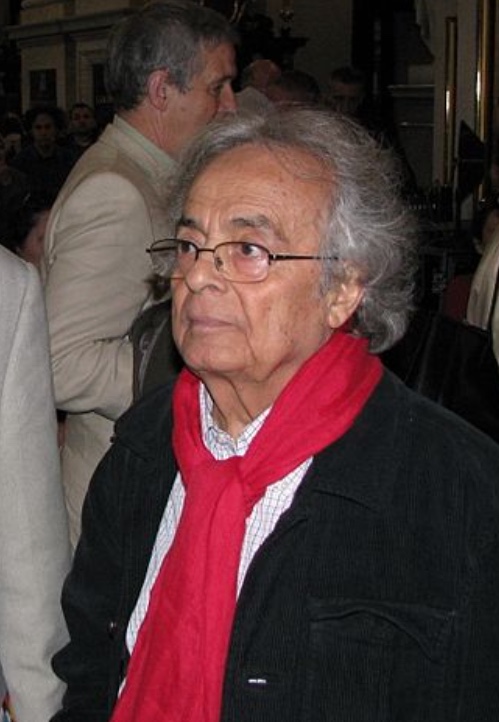Adonis: A Beacon of Syrian Poetry

By: Fedal Hanoun / Arab America Contributing Writer
There is a well-known Syrian poet, essayist, and critic who goes by the name Adonis. His real name is Ali Ahmad Said Esber. His original writing style and examination of topics such as love, sorrow, exile, and the human condition have made him a notable character in Arab literature. He was born in 1930 in the coastal village of Qadisha, Syria, and has since become a prominent figure in Arab literature.
A Poet Shaped by Political Turmoil
The early years of Adonis’s life were defined by instability in both the political and social spheres. Soon after Syria gained its independence from France in 1946, the country went through a period of instability, which ultimately resulted in the establishment of authoritarian administrations. The circumstances that Adonis went through had a significant impact on his perspective and helped shape his poetic voice. The written word provided Adonis with both solace and an outlet for expression, and he began writing poems at a young age. The movements of modernism and surrealism had an impact on his early drawings and paintings. His involvement in the Arab nationalism movement began in the 1950s, and he did so with the intention of establishing a unified Arab nation. Nevertheless, his hopes were dashed by the wars between Israel and the Arab world as well as the emergence of authoritarian regimes in the region.
The Book of the Mirror
Adonis’s “The Book of the Mirror” (1969) is widely considered to be one of his most acclaimed works. The themes of love, loss, and the passage of time are explored in depth in this collection of poems. Adonis is able to portray the nuances of human emotions through the use of vivid images and rich metaphorical language. The author’s ability to evoke strong feelings in the reader is demonstrated by the book, which is a testimonial to his command of the English language.
The Book of the Thousand Faces
The publication “The Book of the Thousand Faces” (1978) is yet another important piece of work. In a world that is characterized by war and change, this collection investigates the idea of identity as well as the fragmentation of the self throughout this time period. In order to weave a complex web of meaning, Adonis makes use of both historical and mythological elements. A meditation on the human condition and the enduring power of the imagination, the book is a reflection on both of these topics.
The Book of the Sea
Of Adonis’s many notable works, “The Book of the Sea” (1997) stands out. He delves into the sea’s dual meanings of liberation and confinement in this collection. Adonis often uses images of the water in his poetry, which symbolizes the boundlessness of space, the enigma of the unknown, and the desire to flee from one’s problems. Within “The Book of the Sea,” Adonis delves into themes of exile, yearning, and the pursuit of purpose by way of the ocean.

A Master of Language and Thought
Poetry written by Adonis has been translated into a great number of languages, and he has been honored with a great number of awards and accolades. It is widely acknowledged that he is among the most important Arab poets of the 20th and 21st centuries. His writing continues to present readers all over the world with a challenge and inspiration. In addition to his work as a poet, Adonis is extremely well-known for his essays and criticism.
In the fields of Arab literature, philosophy, and politics, he has produced a substantial body of work. The cultural and political panorama of the Arab world is analyzed in his works, which provide intelligent perspective on the subject. The legacy that Adonis leaves behind is one that is characterized by creativity, bravery, and an unyielding dedication to the power of the written word. The poetry and articles that he has written continue to strike a chord with readers who are interested in comprehending the complexities of the human experience and the issues that the Arab world is currently confronting.
Check out our blog here!








